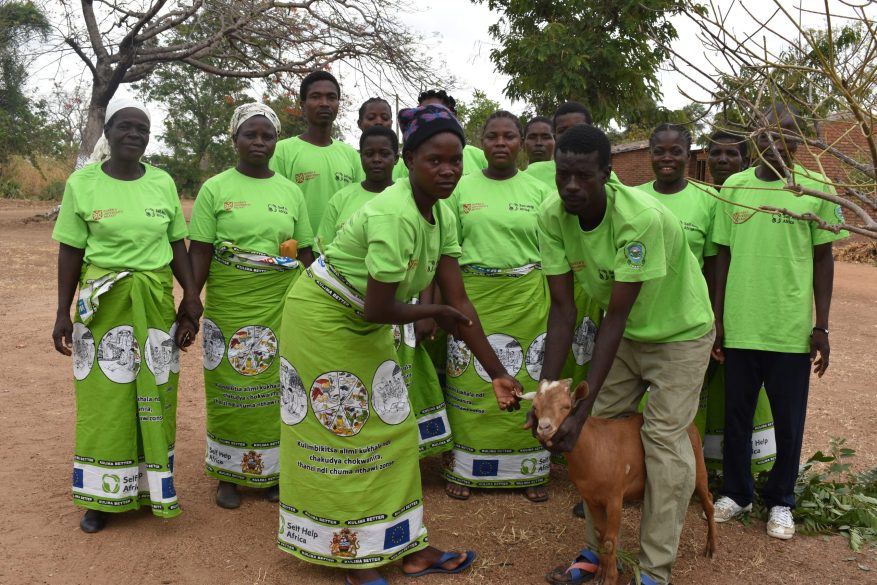Climate change is posing an increasing threat to crop viability in Malawi. As a result, goats are becoming an increasingly valuable source of food and income for farming families. Therefore maintaining their health and productivity is vital.
Self Help Africa’s Goat Health Farmer Field School pilot project in Chipoka, alongside the Ministry of Agriculture, aims to do just that. The project is advocating for the use of the Five Point Check (FPC) system, a simple, quick, cheap, reliable and easily learned system of examining sheep or goats for key signs that will indicate whether an animal needs treatment.
Lucy Adam, a farmer from Kamange village, says she is now much more knowledgeable about rearing the livestock: “Previously, we did not pay attention to some of the little things. When our goats were sick, we called the veterinary officers to treat all of the goats, and this was very costly. Now we know when our goat is unwell and how to treat them.”
Project leader Dr Andrew Safalaoh says there’s an indication that locally available plants have the potential to be used for treatment for goats, while also being used as feed supplements. “Using local bioactive plants helps in reducing reliance on chemical treatments to maintain goat health and productivity. As such, use of drugs may not be required.”
According to recent research, targeted selective treatment approaches such as this, reduces drug costs by using 83% less drugs, yet yielding the same outcome. “In this project we will be encouraging the farmers to use both plant-based and drug treatments, so that they can save on the cost of buying drugs. “However, the local plants are still under study” explains Eluness Masebo, Self Help Africa project co-ordinator.
The Goat Health Farmer Field School Project is an outreach activity involving a cluster of international research institutions, including project funders Queen’s University Belfast (QUB). The project aims to increase livestock production among smallholder farmers through the application of targeted selected treatment.


